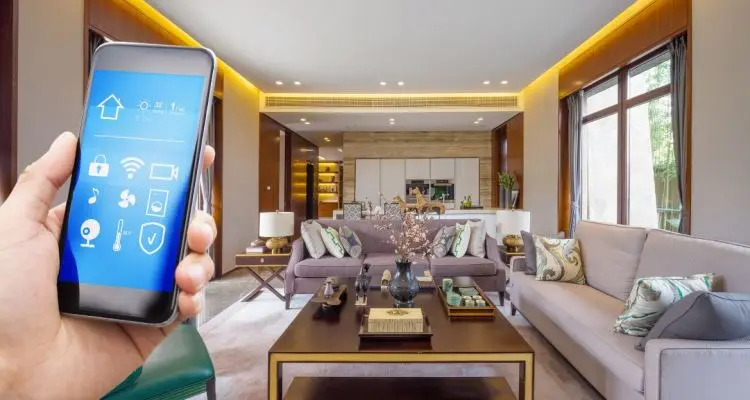
The modern home is no longer just a place of rest and relaxation; it has transformed into a hub of connectivity and intelligence, made possible through the rapid evolution of technology.
The concept of a ‘smart home’ goes beyond just owning digital devices; it encapsulates the integration of these devices into our daily lives in ways that simplify tasks, enhance security, and promote efficiency.
The HouseDecorx.com site explores various smart home ideas that homeowners can consider in their efforts to utilize technology to increase comfort and efficiency.
1. Smart Lighting Systems
Smart lighting goes beyond merely using energy-efficient LED bulbs. With the advent of smart bulbs and connected systems, homeowners can now control the brightness, color, and even the color temperature of their lights.
Whether it’s setting a romantic mood, enhancing the reading experience, or just ensuring that lights turn off when no one’s in the room, smart lighting solutions make it all possible. Some systems can even adapt to the time of day, mimicking natural light patterns to help regulate our circadian rhythms.
2. Intelligent Thermostats
Imagine a thermostat that learns your preferences. Intelligent thermostats do just that. These devices adapt to your heating and cooling patterns, making adjustments to ensure optimal comfort while also conserving energy. Over time, they can lead to significant savings on utility bills.
3. Smart Security Systems
Security in the modern home has seen substantial enhancements with the integration of technology. From smart doorbells with integrated cameras that allow homeowners to see and speak to visitors remotely to advanced alarm systems that can distinguish between regular occurrences and potential threats, home security has never been this sophisticated.
4. Connected Kitchen Appliances
The kitchen is not exempt from the smart home revolution. Modern fridges can track expiration dates, suggest recipes based on available ingredients, or even order groceries when supplies run low. Ovens can be preheated remotely, and smart coffee makers can have a fresh brew ready by the time you wake up.
5. Automated Cleaning Solutions
Robotic vacuum cleaners and mops have been a game-changer for many households. These devices can be scheduled to clean at specific times, ensuring that homeowners return to a clean and tidy space. Advanced models can map out the layout of a home, ensuring every nook and cranny is covered.
6. Integrated Entertainment Systems
Home entertainment has seen a transformation with smart TVs, voice-controlled speakers, and integrated home theater systems. These devices can communicate with each other for an immersive experience. For instance, lights can dim automatically when a movie starts or change colors in sync with the music’s rhythm.
7. Water Management Systems
With water becoming a precious resource, smart water management systems are invaluable. From intelligent irrigation that waters plants based on weather forecasts and soil moisture to smart leak detectors that send alerts in the event of a potential issue, homeowners can both conserve water and prevent potential damages.
8. Energy Monitoring Solutions
Being conscious of energy consumption is both environmentally responsible and cost-effective. Smart plugs and energy monitoring systems allow homeowners to track the energy usage of different devices, helping them make informed decisions about where they can save.
9. Unified Control Platforms
With so many smart devices in a modern home, a unified platform or hub becomes necessary. Systems like Amazon’s Alexa, Google Home, and Apple’s HomeKit allow users to control multiple devices from a single interface, making management more streamlined.
10. Personalized Automation
One of the most significant advantages of a smart home is the ability to set routines. Morning routines could involve opening the blinds, setting the thermostat, brewing coffee, and turning on the news – all triggered by a single command or even by the simple act of waking up.
Conclusion
Outdoor Kitchen Ideas offers an attractive combination of comfort and efficiency, thereby improving the quality of our lives. Utilizing this technology means less time spent on everyday tasks, potential savings on utilities, and a better living experience.
While it may seem overwhelming to begin the transition, starting small and gradually adding devices can lead to a harmonious blend of tradition and technology in our homes. As technology continues to evolve, it’s an exciting time to imagine the new innovations on the horizon that will further enhance the concept of the intelligent home.